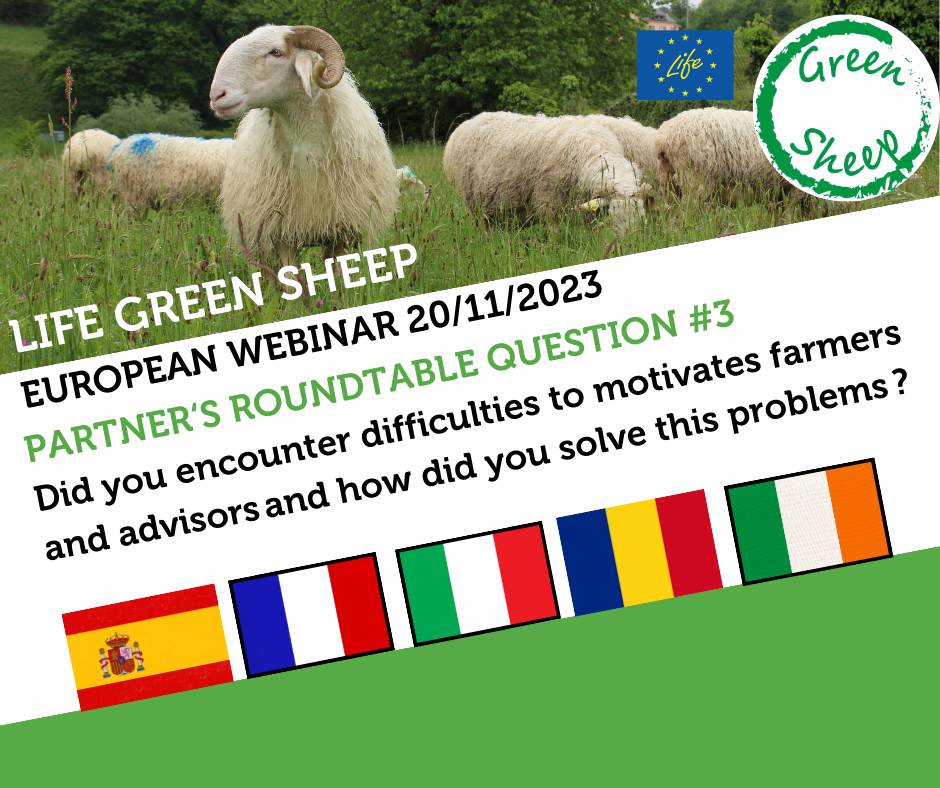![]() Gabriella Serra (Italia)
Gabriella Serra (Italia)
The selection of the farmers has been affected by their level of interest in the topic, both for demonstrative and innovative farms. The presentation of the Greensheep project was made by immediately highlighting the connections between climate change and the economic benefits obtainable by the farms; but despite this, not all the farmers were interested. It can be said that basically, the CC topic stimulated greater interest with those farmers who are regularly updating, who relate to the environment around them and wish to improve themselves in various aspects and keep up with the times.
![]() Catalin Dragomir (Romania) :
Catalin Dragomir (Romania) :
Yes, the selection was affected by the lack of incentives to decrease the carbon footprint of the farms and by the fact that the farmers focus on short-term objectives and problems.
As we said before…, the main argument used during the selection process, (beside previously buit trust), was that higher efficiency of various farm activities (feeding efficiency) means not only a reduced carbon footprint / unit of products, but also higher profits for the farmers.
![]() Roberto Ruiz (Spain)
Roberto Ruiz (Spain)
Advisers and farmers are usually more focused on short term deadlines and growing administrative tasks. The economic situation (high production costs), togegher with the general situation of lack of generational turnover in sheep farming and the abandonment of the territory (difficulties to get labour resources for the farms), sometimes generates a depressing atmosphere bettween farmers and lack of willingness to test innovations. To get involved In the project we try to focus the attention in the objectives of improving the technical (and also hopefully economic) indicators.
![]() Cathal Buckley (Ireland)
Cathal Buckley (Ireland)
Behaviour change is difficult in general, this is not unique across farmers. Teagasc have long been advocating from adoption of environmentally friendly practices and technologies and with both an research and extension arm are in a good space to try and influence farmers. To drive change Teagasc initiated a joint industry-farmer initiative to promote change and adoption of best practice in this space called the “Teagasc Signpost Programme” this overlaps with the objectives of the LIFE Green Sheep programme and helps motivate advisors and farmers.
![]() Sindy Throude (France)
Sindy Throude (France)
As mentioned above, we are beginning to have tangible arguments and to take local action to involve farmers. These points are worked on and presented to the advisers when they are trained in the tools, so that they have as many arguments as possible to be able to recruit farmers. In addition to trainings, we regularly organise meetings with advisers to discuss this subject. The livestock sectors in France are keen to work on the GHG emissions mitigation issue and to integrate it into their advice.

